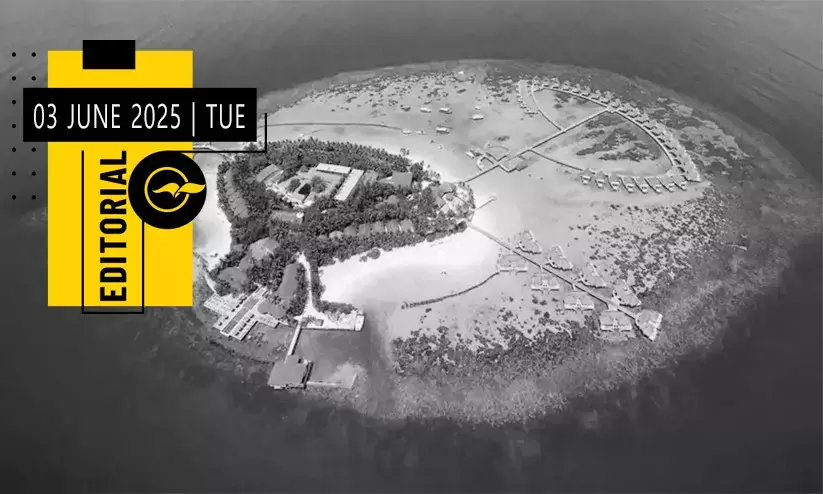
The Lakshadweep administration has decided to remove Arabic and Mahal languages from schools in Lakshadweep and to implement the central government’s three-language policy. An order from Lakshadweep Education Director Padmakar Ram Tripathi mandates teaching Malayalam as the mother tongue for the academic year starting June 9, and English and Hindi as the second and third languages in both the CBSE and Kerala syllabi. The order states that the move is in accordance with the National Education Policy’s recommendations for multilingual proficiency. From the first grade onwards, in Kerala syllabus, Malayalam-medium schools will teach Malayalam as the first language, and English and Hindi as the second and third languages. In CBSE schools, English will be taught as the first language, with Malayalam and Hindi as the second and third languages. Until last year, around four thousand students studying under the Kerala and CBSE syllabi on the islands were learning Arabic and Mahal, the native tongue of Lakshadweep. The order places these students in a crisis.
The National Education Policy clarifies that multilingual learning from the school level is what the three-language learning policy entails. However, it also states that implementation should be with due consideration to the needs of the people and regions, constitutional provisions, and national unity, and that no language should be imposed anywhere. The provision is that two of the three languages must be regional languages. Criticism has arisen that the Lakshadweep administration is violating the fundamental principles of this policy. The Lakshadweep people are the only community in the country that uses the Mahal language. Mahal, the main spoken language of Minicoy Island, has been taught to students for generations. Approximately 12,000 to 15,000 people in Minicoy are believed to speak this language. Outside India, the Maldives is another region where this language is spoken. The Mahal language is inextricably linked to the culture of the Lakshadweep people. Along with Mahal, Arabic is also regarded by them as a major language. In fact, the people of Lakshadweep show greater interest in studying Arabic than Mahal. Both of these are being sidelined by the new order.
The people of Lakshadweep have been under severe pressure for some time. They point out that the administrators appointed by the central government are implementing measures that question their existence. Many of the steps taken after appointing Praful Khoda Patel, a former BJP MLA from Gujarat closely connected to Prime Minister Narendra Modi and Home Minister Amit Shah as administrator, serve as examples. Attempts to expand alcohol sales in the name of tourism, the seizure of traditional agricultural land used for farming and other purposes for many years, removal of meat from school students’ meals, dismissal of two thousand contract workers, reduction in the number of ship services, increase in charges, uncontrolled tourism development, orders not to throw palm leaves and coconuts into the fields, and reforms such as requiring vehicles to be used for solid waste removal — the island residents say these reforms and the measures are not well-intentioned. The latest among these, they say, is the ban on language study that sets fire to their culture. Due to the expiry of terms and the absence of new elections, there are no local self-government committees, resulting in a paralysis in all matters. This situation arose after the islanders approached the courts against the new ward delimitation by the administration. Currently, the only elected representative of Lakshadweep is Member of Parliament Hamdullah Sayeed.
Language constitutes the identity and culture of a community. An intrusion into a language is also an intrusion upon that community. It does not need reiteration that a community that loses its language will face difficulties in its future. According to UNESCO’s data, around 200 languages in India are under threat. At a time when many languages are already facing threats on the ground, it is unacceptable that the government itself through its reforms, is eradicating both language and linguistic diversity. The government must identify which language a community prefers and needs, and provide the necessary support for it. Actions to the contrary will only contribute to anxiety and instability within the community.